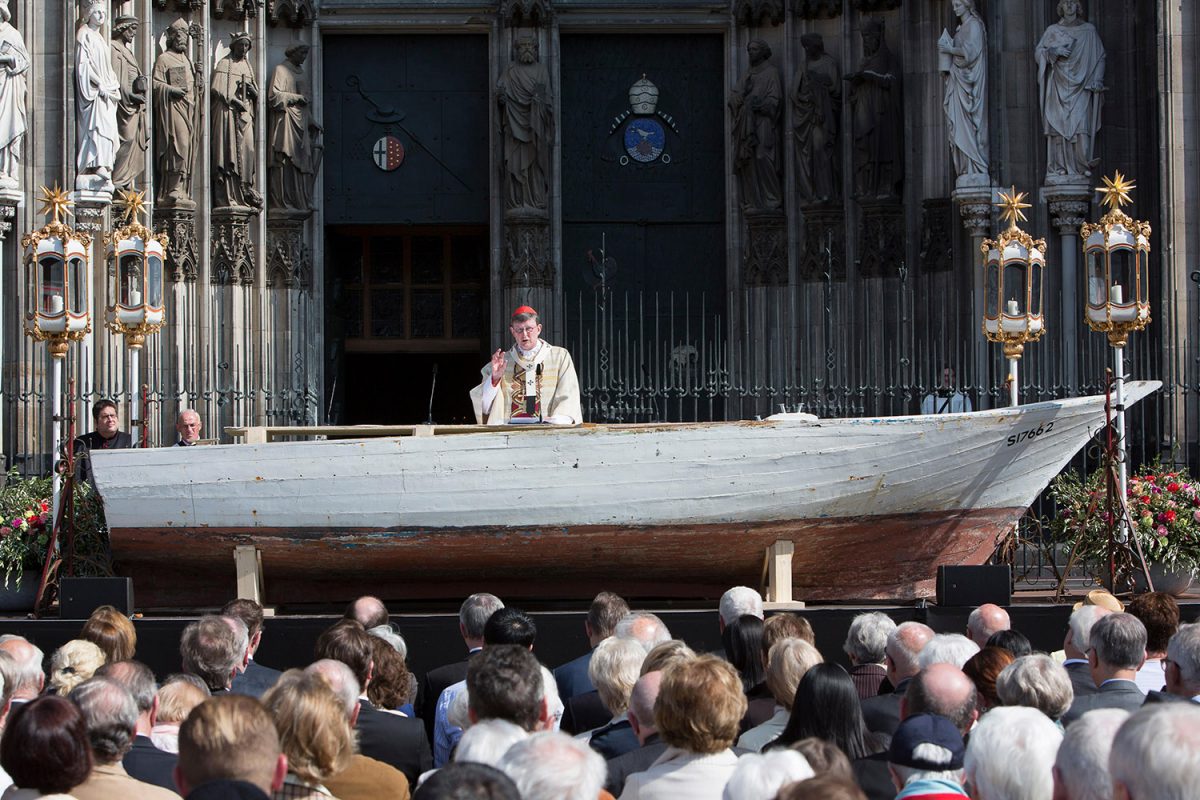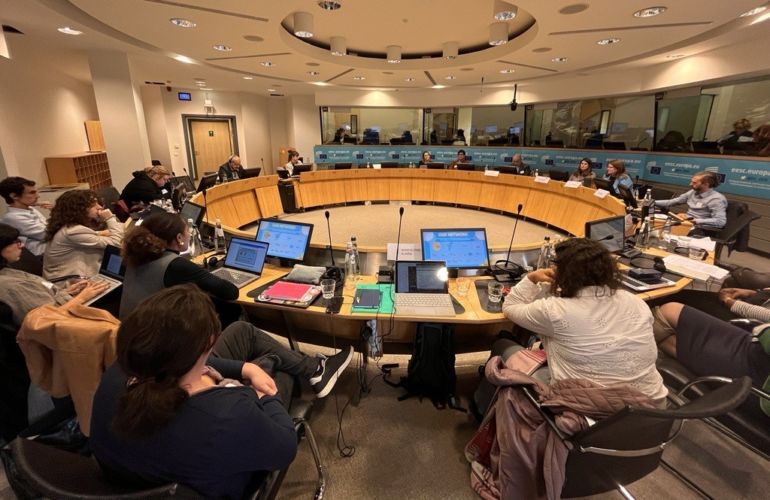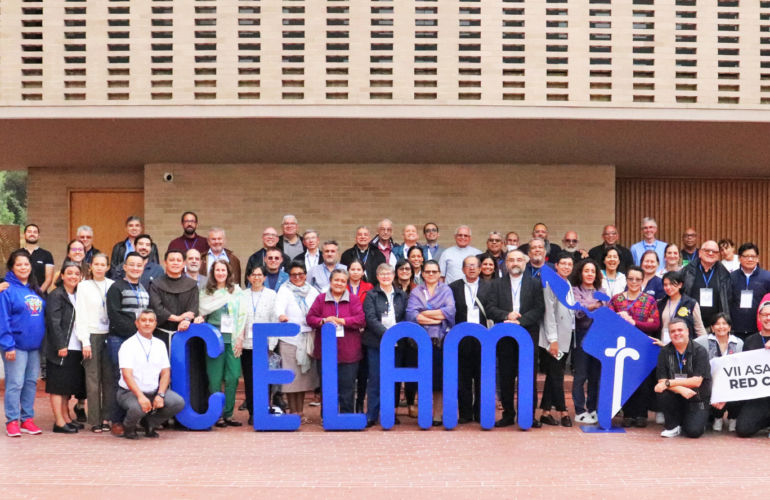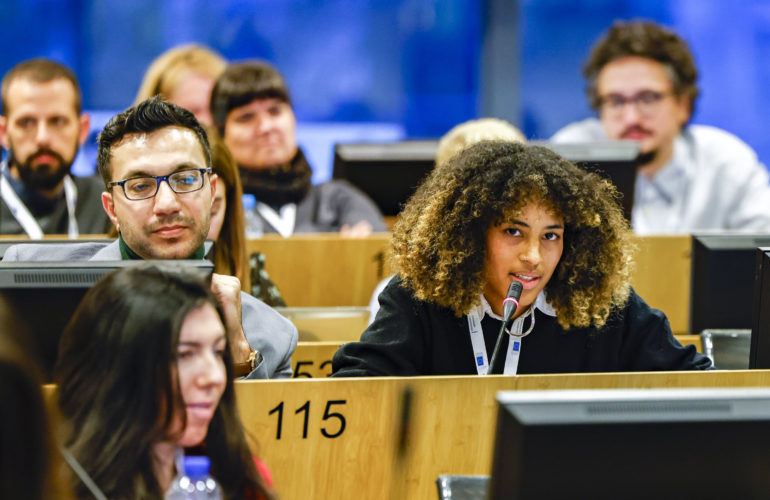Learning from Experiences of Community-Based Refugee Sponsorship in Europe

Parishes and other groups of citizens in small-medium municipalities are increasingly involved in offering support to refugees in some parts of Europe. But how to promote successful reception and integration practices in other European countries which have less experience of community-level support?
A recent three-day “look and learn” visit to the German North Rhine Westphalia region by representatives of civil society organizations and municipal authorities was an attempt to do just that. The tour was organized in late September by the SHARE Integration Project led by the International Catholic Migration Commission. Ten delegates from Belgium, Croatia, France and Portugal took part in the visit.
The North Rhine Westphalia region was chosen because of the Archdiocese of Cologne’s unprecedented support for refugees and because of local volunteers’ inspirational efforts to support integration in the region. As a sign of diocesan commitment, a boat used by migrants and refugees in the Mediterranean stands outside the Cathedral, and the Archdiocese is currently considering supporting sea rescue operations.
In Cologne and Linz, participants learned about the work of MigrAfrica, an NGO that links newcomers with migrant volunteers of the same background. They were also briefed on the diocesan “Action New Neighbors” project. Some fascinating site visits showcased their work on the ground and allowed participants to share ideas and information with our hosts.
A diaspora organization, MigrAfrica’s work focuses on community-based entrepreneurship, job-market integration, and the inclusion and empowerment of refugee women. Action New Neighbors also supports the integration of refugees in the labor market and, in addition, has created integrated living apartments in collaboration with Caritas. A non-bureaucratic grant funding network supports grassroots volunteers working to receive and integrate refugees.
Lack of low-cost housing is a significant problem in Cologne. The Diocese’s integrated living apartments at the Poor Clares Convent offer accommodation to over 50 local citizens and refugees alike. Part of a wider renovation, the convent also houses unaccompanied minors and asylum-seekers. The apartment complex is a beautiful place, full of light, with facilities for cultural events and celebrations.
The group also visited the village of Unkel, which includes four rural municipalities with a population of 20,000 inhabitants. There, they were introduced to the labor market and mentor programs, a bicycle repair shop, and a community garden on the revitalized site of a former swimming pool.
The local church supports the integration of over 300 refugees in the municipality via ecumenical cooperation with groups of grassroots volunteers and with the city authorities. It is clear that the local volunteers are proud of how they are making a tangible difference in the life of refugees in their community. MigrAfrica and Action New Neighbors coordinate the volunteers in a very loose non-bureaucratic structure.
Volunteers Are the Heart of More Inclusive and Welcoming Communities
Local volunteer groups are the powerhouse of community sponsorship. Programs must seek to support and stimulate — and not to frustrate! — their engagement in receiving and settling refugees. Complex procedures risk deterring motivated people from establishing sponsoring groups. Ensuring minimum quality standards for volunteer groups while at the same time allowing for program flexibility and innovation requires a delicate balance that needs to be further tested and evaluated in different national contexts.
While governments usually prefer schemes that are embedded in mainstream State resettlement programs, humanitarian corridor and sponsorship programs can be quicker in offering protection to a more diverse group of persons and nationalities. In Europe, these programs have provided protection outside of the pursuit of EU migration management objectives, which dictate resettlement priority groups and countries.
At the same time, while humanitarian corridor and community sponsorship programs can initiate creative solutions and broaden capacity, they cannot and should not replace the obligations of the State.
On the group’s last day in North Rhine Westphalia, a site visit in Linz brought together experiences gathered and additional promising practices presented by hosts and participants, who discussed how those practices can be transferred and adapted to the delegates’ respective countries and municipalities.
In conclusion, the good practices and lessons learned from community sponsorship experiences thus far can lead to further engagement of NGOs, churches and citizens in these programs and, more broadly, to the growth of complementary pathways of admission for refugees in Europe.
This will, in turn, result in increased refugee admissions, expanded opportunities for welcome and integration and a transformation of European cities and towns into more inclusive and cohesive communities.
More open and welcoming communities will make a significant contribution to the Global Compact on Refugees and its associated Three-Year Strategy on Resettlement and Complementary Pathways.


